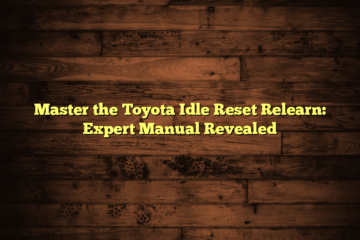Can Police Search a Locked Toolbox? The Legal Boundaries!
Yes, the police can search a locked toolbox if they have a valid search warrant. A search warrant gives police officers the legal authority to search specific locations, including locked containers, for evidence of a crime.
When police obtain a search warrant, they must demonstrate to a judge that there is probable cause to believe that evidence of a crime will be found inside the locked container. If the search warrant is valid and authorizes the search of the toolbox, the police can lawfully break the lock or open the toolbox to search for the specified evidence.
However, it is important to note that there are exceptions to the search warrant requirement, such as when there are exigent circumstances or if the owner of the toolbox gives consent for the search.
Understanding Search And Seizure Rules
Understanding Search and Seizure Rules is essential to know the Constitutional protection against unreasonable searches. According to the Fourth Amendment of the United States Constitution, individuals are protected from unreasonable searches and seizures conducted by the police. However, there are certain circumstances where the police may search a locked toolbox or any other container.
Typically, the police need a warrant to search a locked toolbox unless there are exceptions such as consent, exigent circumstances, or the presence of probable cause. The warrant requirement ensures that the police have a valid reason and proper authorization before conducting a search, balancing the individual’s right to privacy.
Expectations of privacy are also taken into consideration. If an individual has a reasonable expectation of privacy in a locked toolbox, the police generally need a warrant to search it. Nevertheless, it is important to note that the interpretation of search and seizure rules can vary depending on the specific circumstances and jurisdiction.
Locked Toolbox Searches: Legal Considerations
When it comes to locked toolbox searches, there are legal considerations that law enforcement must adhere to. These considerations revolve around the concepts of probable cause and reasonable suspicion. Probable cause refers to the belief that a crime has been or is being committed, while reasonable suspicion is a lower level of belief that a person may be involved in criminal activity.
In certain circumstances, such as exigent circumstances or warrant exceptions, the police may be permitted to search a locked toolbox without a warrant. Exigent circumstances refer to situations where there is an immediate need to act in order to prevent the destruction of evidence or protect public safety. Warrant exceptions, on the other hand, are specific circumstances outlined by law where a search may be conducted without a warrant.
The legality of a locked toolbox search ultimately depends on the specific details of the situation and the laws of the jurisdiction in which it occurs. Police officers must carefully consider these legal considerations before conducting a search to ensure they are acting within the confines of the law.
Police Protocols For Searching Property
Standard police procedures during vehicle stops give officers the authority to search a vehicle without a warrant if they have probable cause to believe that there is evidence of a crime inside. However, the situation becomes more complex when it comes to locked containers, such as toolboxes.
Legal precedents governing locked containers state that the police generally need a warrant to search a locked toolbox unless certain circumstances are met. For example, if the police have probable cause to believe that the locked container contains evidence of a crime, they may be able to search it without a warrant.
It is important to note that the rules concerning the search of locked containers may vary depending on the jurisdiction and the specific facts of the case. It is always best to consult with a legal professional to understand the applicable laws and regulations governing the search of locked toolboxes by the police.
Navigating Your Rights
A locked toolbox is considered a container of personal belongings that may receive different legal protections when it comes to police searches. Understanding your rights under the Fourth Amendment is crucial should you find yourself in a situation where your locked toolbox is being searched.
If a police officer wants to search your toolbox, they generally need a search warrant, unless certain exceptions apply. One example of an exception is if you give the officer consent to search it. However, it is essential to be aware of your rights and know when to assert them.
Asserting your Fourth Amendment rights can help ensure that your toolbox and its contents are not unlawfully searched or seized. If you believe your Fourth Amendment rights were violated during a toolbox search, it may be necessary to consult with an attorney experienced in criminal law. They can provide guidance on the appropriate legal steps to take and determine if any remedies are available.
In summary, understanding your rights, asserting them when necessary, and seeking legal advice when in doubt are important actions to protect your rights in the event of a police search of a locked toolbox.
Frequently Asked Questions Of Can Police Search A Locked Toolbox?
Can Police Search A Locked Toolbox Without A Warrant?
In most cases, police cannot search a locked toolbox without a warrant unless there is probable cause or consent.
What Are The Exceptions Where Police Can Search A Locked Toolbox Without A Warrant?
Police can search a locked toolbox without a warrant if they have exigent circumstances, plain view doctrine, or if the toolbox is in a vehicle during a traffic stop.
What Happens If Police Search A Locked Toolbox Illegally?
If police search a locked toolbox illegally, any evidence found may be deemed inadmissible in court, potentially resulting in the case being dismissed.
How Can I Protect My Privacy If Police Want To Search A Locked Toolbox?
To protect your privacy, you can assert your rights, ask for a search warrant, or consult with an attorney if you believe your rights have been violated.
Conclusion
The question of whether the police can search a locked toolbox is a complex and nuanced one. While there are certain situations in which the police may have the authority to search a locked toolbox without a warrant, such as in the case of an emergency or if the toolbox is within the immediate reach of a suspect during a lawful arrest, there are also limits to their power.
It is crucial to understand your rights and consult with legal experts to navigate such situations. Remember, protecting your privacy and understanding the law go hand in hand.




